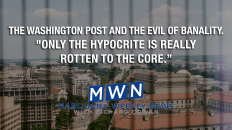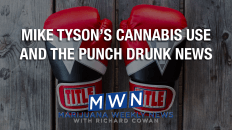Well, I think that we’re really not going to have a problem with CBD. That particular genie is out of the bottle.
But I think that Texas is going to be a major battleground over medical marijuana more generally, and ultimately about recreational use. The state is very split demographically. There are four or five major metropolitan areas that tend to, not surprisingly, be more socially liberal. Also, in particular, the sheriffs in Texas mostly have disproportionate political power. So the state legislature is distorted somewhat in that the rural areas are disproportionately represented. And so this creates a real problem in terms of passing laws that are really the greatest impact in the cities. But the cities do not have direct control over this. This is not a new problem, in 1973 to move to Austin, which is one of a really lovely city, the problem with that time was we had 800 people in the state penitentiary for less than one ounce of cannabis. Of those 30 some odd, are doing a life for less than an ounce of marijuana. You know, when you talk about the history of marijuana prohibition – and this is 1973 – so this is not something new. And I never saw the survey of the racial breakdown of the prisoners, but I’m sure that they were disproportionately nonwhite. Let’s just define it this way, this is putting a lot of particularly young men whose families couldn’t afford to buy them justice away. They couldn’t afford the best lawyers or the best bribe or whatever.
We did get the laws changed in 73. Eight hundred people were released from the Texas prison system in the fall of 1973. The irony of it is this. In 1973, the Texas Senate was ready to decriminalize marijuana.
They actually passed their version of the reform bill that can make marijuana a Class C misdemeanor of a one hundred dollar fine in 1973. Now, that did not pass the Texas House, so they compromised, which is a big compromise. Go to Class B misdemeanor, which means that you could do six months in jail and a thousand dollars fine. But no doubt that since then, many, many thousands of young, mostly young men have been run through our jails and our criminal justice system because of that. But we did get eight hundred out of prison.
That was the kind when you’re holding 800 people hostage. That’s really what’s happening.
If we hadn’t done that, there could have been thousands more. Here we are now and the so-called modern world and where Texas is, you know, people are moving to Texas and California. Paulson is a major tech center. Austin is a major music center. Fort Worth, my hometown, is an absolutely wonderful place. Dallas is Los Angeles and Houston is the capital of the oil business of the US. And we may get medical, but it’s going to be a major battle. It really is very sad thing.
Taken, I mean, always within the American context where we talk about life, liberty and the pursuit of happiness. In any place in America, this is an outrage against everything we proclaim to believe in.
But for God’s sake, in Texas, remember the Alamo? Oh, no. “I want to do what some politician tells me I have to do.” No, remember the Alamo. Think about when we really did believe in freedom and a Texan could be the last person to bow down to some god damn corrupt politician in Washington, D.C.. Oh, sorry. I don’t mean to offend anybody.
Remember the Alamo, folks?




